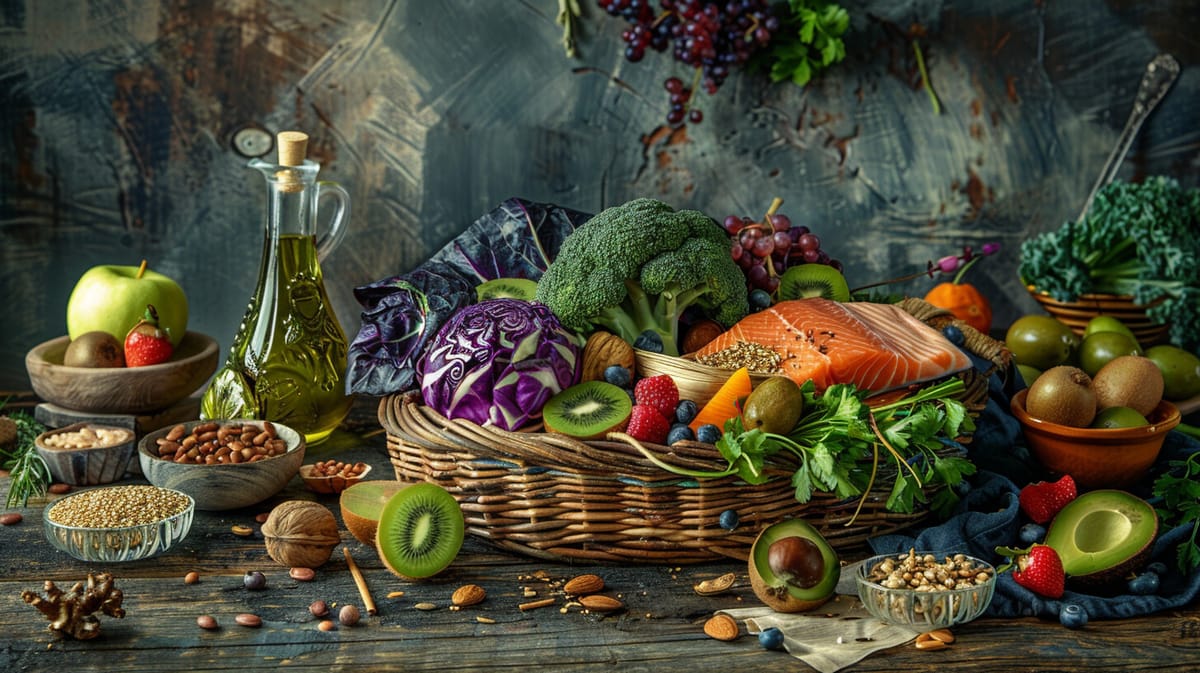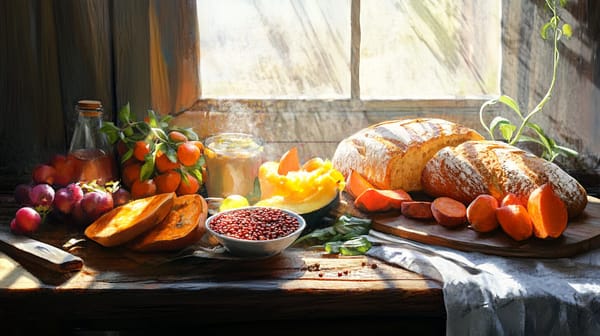11 Nutrient-Packed Superfoods to Incorporate into Your Diet

Introduction
Maintaining a healthy diet is key to overall wellness, but with countless fad diets and conflicting information, it can be challenging to know what to eat. Instead of focusing on restrictive diets, a more sustainable approach is to incorporate nutrient-dense foods into your regular meal plan. These "superfoods" are packed with vitamins, minerals, antioxidants, fiber, and other beneficial compounds that can boost your health in numerous ways.
Leafy Greens
Dark leafy greens like spinach, kale, chard, and dandelion greens are low in calories but high in essential nutrients. They are an excellent source of vitamins A, C, and K as well as iron and fiber. Leafy greens are incredibly versatile - add them to smoothies, salads, stir-fries, soups, or sauté them as a simple side dish.
Avocados
The creamy, green flesh of avocados is rich in heart-healthy monounsaturated fats which can help lower LDL cholesterol. Avocados are also high in fiber, with half a fruit providing about 7 grams. Enjoy avocado sliced on toast, as a topping for salads and grain bowls, blended into smoothies, or as a substitute for butter in baked goods.
Fatty Fish
Salmon, sardines, mackerel and other fatty fish are the best sources of omega-3 fatty acids. These healthy fats are anti-inflammatory and linked to a reduced risk of heart disease, stroke, and autoimmune disorders. Aim to eat at least two servings of fatty fish per week. Grill, roast, or poach fish and serve with vegetables and complex carbs for a balanced meal.
Walnuts
All nuts provide a combination of healthy fats, plant protein, and fiber, but walnuts are especially nutritious. They are one of the best plant sources of anti-inflammatory omega-3 fatty acids. Walnuts are also rich in magnesium, a mineral involved in blood sugar control and nerve and muscle function. Add chopped walnuts to oatmeal, salads, stir-fries, and baked goods.
Extra Virgin Olive Oil
A staple in the Mediterranean diet, extra virgin olive oil is a heart-healthy fat that can lower inflammation, blood pressure, and LDL cholesterol levels. Unlike more refined oils, EVOO retains beneficial antioxidants and compounds from olives. Use EVOO for cooking and in salad dressings, sauces, and to flavor cooked dishes.
Berries
Strawberries, blueberries, raspberries, and blackberries are some of the most antioxidant-rich fruits. The bright colors of berries come from pigments that help fight oxidative stress and inflammation. Berries are also high in fiber and vitamin C. Eat them plain as a snack or dessert, add them to yogurt and oatmeal, or blend into smoothies and sauces.
Broccoli
Broccoli is a nutritional superstar, providing an array of vitamins, minerals, fiber, and unique plant compounds. It's an exceptional source of vitamin C, vitamin K, folate, and sulforaphane - a sulfur compound that has anti-cancer properties. Enjoy broccoli roasted, stir-fried, steamed, or raw in salads.
Red Cabbage
This vibrant cruciferous veggie is packed with anthocyanins - flavonoid pigments that give red cabbage its bright hue. Anthocyanins have antioxidant and anti-inflammatory effects and may protect against heart disease and certain cancers. Red cabbage is also an excellent source of vitamin C and fiber. Shred it raw for slaws and salads or sauté, braise, or roast wedges.
Kiwis
The sweet-tart flavor and bright green color of kiwis hints at their exceptional nutrient content. One kiwi has more vitamin C than an orange, plus a good dose of fiber, vitamin E, and vitamin K. Some studies suggest the high antioxidant and serotonin content of kiwis may boost mood and improve sleep quality. Slice and eat kiwis plain or add them to fruit salads, smoothies, and salsa.
Beans
Budget-friendly beans are some of the most nutrient-dense foods you can eat. They are incredibly high in fiber, plant protein, folate, magnesium, potassium, and iron. The fiber and resistant starch in beans is filling and helps stabilize blood sugar. Regular bean consumption is linked to lower body weight, cholesterol, and blood pressure. Add beans to soups, stews, salads, tacos, and veggie burgers.
Chia Seeds
These tiny seeds pack a big nutritional punch. Chia seeds are one of the best plant sources of heart-healthy omega-3 fatty acids. They're also high in fiber, providing 10 grams per ounce - more than many whole grains. The fiber in chia seeds absorbs water, swelling to form a gel that promotes fullness. Mix chia seeds into oatmeal, yogurt, and smoothies or make a chia pudding for a healthy snack or dessert.
Conclusion
Incorporating these nutritious foods into your regular meal plan is a simple but powerful way to improve your overall health and wellbeing. Challenge yourself to eat at least one or two of these superfoods each day. Over time, these small changes can add up to big health benefits.




